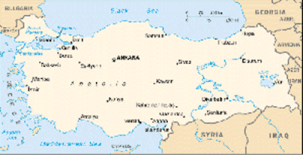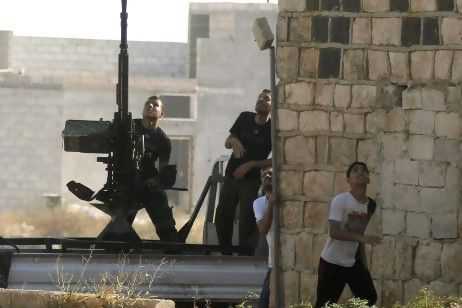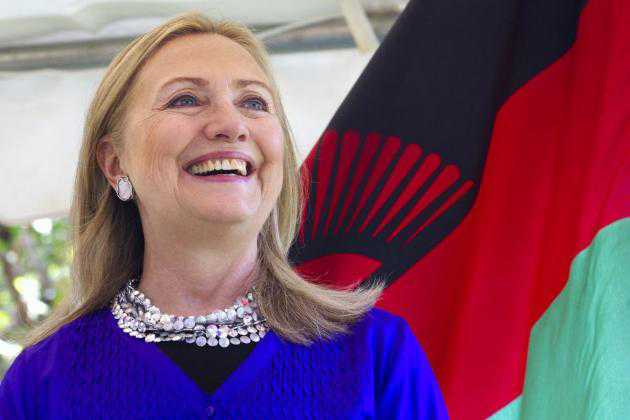Turkey already has troops in Syria and has threatened military action to protect the site they guard.
A 1921 agreement between Ottoman Turkey and France (the Treaty of Ankara), the latter at the time the colonial administrator of Syria, guaranteed Turkey the right to station military personnel at the mausoleum of Suleyman Shah (Süleyman Şah), the grandfather of the founder of the Ottoman Empire, Osman I (Osman Bey).
Turkey considers the area adjacent to the tomb to be its, and not Syria’s, sovereign territory and late last month reinforced its 15-troop contingent there.
Prime Minister Recep Tayyip Erdogan stated the following in an interview televised on August 5: “The tomb of Süleyman Şah and the land surrounding it is our territory. We cannot ignore any unfavorable act against that monument, as it would be an attack on our territory, as well as an attack on NATO land. Everyone knows his duty, and will continue to do what is necessary.” The gravesite of a Seljuk sultan who was reputed to have drowned in the Euphrates River while on a campaign of conquest is now proclaimed a NATO outpost in Syria.
If confirmation was required that a neo-Ottoman Turkey is determined to reassert the influence and authority in Mesopotamia it gained 700 years before and lost a century ago and, moreover, that it was doing so as part of a campaign by self-christened global NATO to expand into the Arab world, the Turkish head of state’s threat to militarily intervene in Syria with the support of its 27 NATO allies should provide it.
Especially as the above complements and reinforces the roles of the U.S. and NATO in providing military assistance to Ankara in its current war of attrition against the Kurdistan Workers’ Party (PKK) in Turkey and Iraq, with Syria soon to follow as last week Turkey deployed troops, tanks, other armored vehicles and missile batteries to within two kilometers of the Syrian border for war games. Last week a retired Turkish official compared the current anti-Kurdish offensive to the Sri Lankan military’s final onslaught against the Liberation Tigers of Tamil Eelam (LTTE) three years ago, ending the 25-year-long war against the latter with its complete annihilation.
U.S. Defense Secretary Leon Panetta’s trip to Colombia in April was designed to achieve the same result in the 48-year joint Colombian-U.S. counterinsurgency war against the Revolutionary Armed Forces of Colombia (FARC). In the current era of international lawlessness, only NATO states and American clients like Colombia and Israel are permitted to conduct military strikes and incursions into other nations and to wage wars of extermination against opponents.
In the same interview cited above, Turkey’s Erdogan asserted the right to continue launching military strikes against Kurdish targets in neighboring countries, stating, “It should be known that as long as the region remains a source of threat[s] for Turkey we will continue staging operations wherever it is needed.”
Turkish Interior Minister Idris Naim Sahin recently claimed that his nation’s armed forces had killed 130 suspected PKK members and supporters in Hakkari province, which borders Iran and Iraq.
Specifically in respect to military attacks inside Syria, Erdogan stated: “One cannot rule that out. We have three brigades along the border currently conducting maneuvers there. And we cannot remain patient in the face of a mistake that can be made there.”
He also stated, in reference to fighting in the Syrian city of Aleppo, “I believe the Assad regime draws to its end with each passing day” and criticized Iran’s support, which is to say its recognition, of the Syrian government. Iran is the inevitable secondary target of actions directed by Turkey and its NATO and Persian Gulf Arab allies against Syria and will be struck through Iraq also.
In the same interview the Turkish head of state identified a third target: Iraq. He condemned the government of Prime Minister Nouri al-Maliki, declaring it illegitimate and urging it be overthrown. In what portends confrontation and possible conflict with Iran and Syria as well by exploiting the PKK issue, he added:
“Even though we should be countries that share the same values, for us to be in such rigor [conflict?] only makes the terrorist organization more powerful. This leads us to approach each other with suspicion.”
In the process he criticized Iran as well:
“It is not possible to accept Iran’s stance [of supporting the Iraqi government]. We conveyed this to them at the highest level of talks. We said to them, ‘Look, this has been a source of disturbance in the region.’”
His comments occurred after the Iraqi government criticized the visit of Turkish Foreign Minister Ahmet Davutoglu to the cities of Kirkuk and Irbil in the Kurdistan Regional Government-controlled north of Iraq in part to secure oil and natural gas deals with the regime of Massoud Barzani, president of the Kurdish autonomous region. Irbil is the region’s capital, but Kirkuk is claimed by Iraq’s central government too. Davutoglu’s trip to Kirkuk was the first by a Turkish foreign minister since 1937.
On August 7 Hurriyet Daily News columnist Murat Yetkin offered this perspective on the matter:
“Because Iraq [is] at risk of falling apart. Massoud Barzani, the leader of the Kurdistan Regional Government (KRG) in the north of the country, which borders Turkey, has started to sign oil and gas deals with energy giants despite the objection of Prime Minister Nouri al-Maliki in Baghdad, who refuses to approve a hydrocarbons law to regulate the sharing of oil and gas income. The energy giants have an interest in supplying more oil and gas that is not controlled or is less controlled by Russia and Iran to Western markets; Turkey provides an option under NATO protection for both Iraqi Kurdish and Azeri resources to be transferred further west. The presence of the outlawed Kurdistan Workers’ Party (PKK) in the KRG region and its armed campaign is, of course, a pain in the neck and a big obstacle to greater cooperation…”
On July 26 the same commentator claimed that “There are already political and economic actors trying to push Turkey to claim some energy-rich parts of Iraq and Syria, which would mean a regime change such as a federated Turkey, with Kurdish and possibly Arabic members,” which, he conceded, “could drag the whole region into a chain reaction of wars.”
Part of Turkey’s justification for involvement in northern Iraq, and another pretext for potential military intervention, is the protection of their ethnic kin, the Turkmen, in the country.
However, since the U.S. and British invasion of Iraq in 2003 the true indigenous people of the north, the Assyrians, have been decimated by attacks from Barzani’s peshmergas and Saudi-backed Wahhabi extremists without Turkey, or the West, being in the least degree concerned. Eight years ago there were an estimated 1.5 million Assyrian and other Christians in Iraq; now there under 500,000. Churches have been destroyed and in 2008 the Chaldean Catholic Archeparch of Mosul, Archbishop Mar Paulos Faraj Rahho, was kidnapped and murdered in the northern Iraqi city where he resided. Other religious minorities – Mandeans, Sabeans and Yezidis – have suffered the same fate. Shiites are regularly targeted by Wahhabi death squads.
The Barzani domain in the north has become a Turkish foothold inside the country, which has aided Ankara by preventing the PKK from operating on its territory and suppressing its sympathizers. It is also a dependable Sunni ally for Turkey, Saudi Arabia and other Gulf monarchies in efforts to weaken the Shiite-led government in Baghdad. The al-Maliki administration condemned last week’s visit by the Turkish foreign minister to the Kurdish-dominated north as a violation of Iraq’s constitution and national sovereignty as Davutoglu had neither requested nor obtained permission to enter Kirkuk.
Iraq’s Foreign Ministry handed the Turkish chargé d’affaires in Baghdad a harshly-worded statement and the Turkish Foreign Minister in response summoned the Iraqi ambassador to lodge a protest.
With Turkish threats against Iraq and Syria, and by inevitable implication Iran, mounting, on August 6 the Chief of Staff of the Iranian Armed Forces, Major General Seyed Hassan Firuzabadi, warned that:
“Saudi Arabia, Qatar, and Turkey are responsible for blood being shed on Syrian soil.
“This is not an appropriate precedent, that neighboring countries of Syria contribute to the belligerent purposes of…the United States. If these countries have accepted such a precedent, they must be aware that after Syria, it will be the turn of Turkey and other countries.
He added that Iran fears “Turkey, Saudi Arabia, and Qatar have become victims of promoting the terrorism of al-Qaeda and we warn our friends about this.”
On the same day Iranian Deputy Foreign Minister Hossein Amir Abdollahian stated, “There is a question that when al-Qaeda plays an active role in Syrian terrorism and violence, why the US and other countries back the shipment of heavy and semi-heavy weapons to the country?”
Kazem Jalali, a member of the Iranian Parliament’s National Security and Foreign Policy Commission, said that “Turkey and those who support and arm terrorists” in Syria were responsible for the safety of 48 Iranians kidnapped in the country on August 4.
The following day the Turkish press reported that Osman Karahan, a Turkish lawyer who defended a suspected top-level al-Qaeda operative accused of participating in deadly bomb attacks in Istanbul in November of 2003 was killed in Aleppo fighting with anti-government forces. In 2006 the Turkish government charged Karahan with aiding and abetting al-Qaeda.
Syria has announced that it captured several Turkish and Saudi military officers in Aleppo. Turkey, Saudi Arabia and Qatar have established a base in the Turkish city of Adana, 60 miles from the Syrian border, to supply weapons and training to Syrian rebels for cross-border attacks.
The Turkish government is providing bases, training and advisers for al-Qaeda and other participants in the insurrection against the Syrian government at the same time that it is threatening Syria, Iraq and Iran over the “terrorist” Kurdistan Workers’ Party.
In bordering Iran, Iraq and Syria, Turkey provides NATO – and through NATO the Pentagon – direct access to those three nations. The final stage in the West’s Greater Missile East Initiative is now well underway, as is a new redivision of the Levant modeled after the Anglo-French Sykes-Picot Agreement of 1916.




